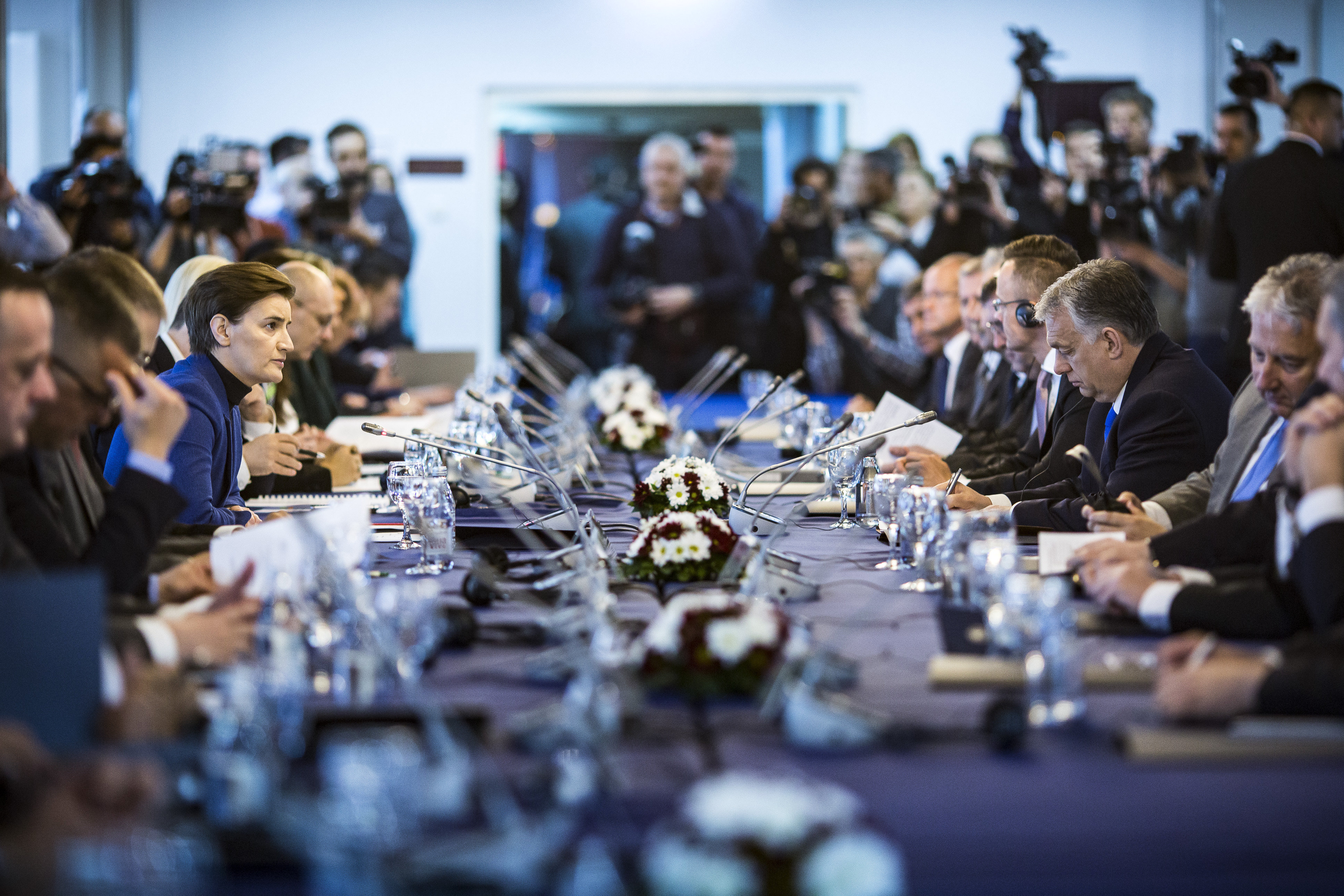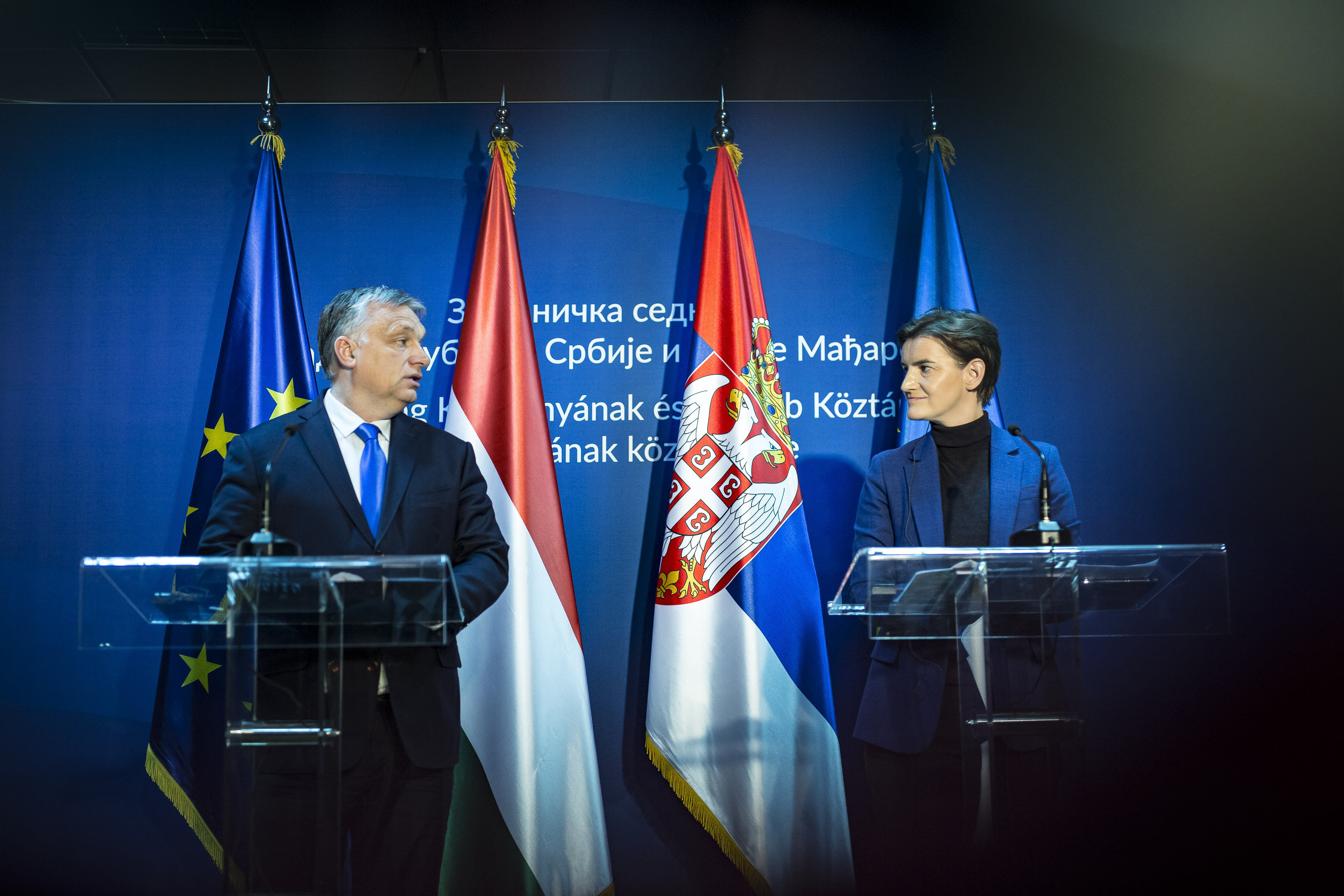Joint session of the Serbian and Hungarian governments held in Serbia

Change language:
Serbia and Hungary have jointly succeeded in stemming illegal migration across the Balkans, Prime Minister Viktor Orbán said after a joint session of the Serbian and Hungarian governments in Subotica (Szabadka), in northern Serbia, on Monday.
Orbán told a joint press conference held with his Serbian counterpart that Serbian acceptance of the fence Hungary built along the common border had been a “magnificent gesture”.
He added that the border fence also benefitted Serbia because “migrants cannot travel on to Hungary and will therefore bypass Serbia”. The “real threat” of migration no longer impinges on the Balkans but emanates from Africa, he said, adding that the Balkan route nevertheless should be watched closely as there was was still “a great deal of supply”.
Europe’s future would easily be fashioned into its western and central European spheres, depending on the number of Muslim communities in each region.
In western Europe, Christian and non-Christian cohabitation has dictated policies for decades while “central Europeans don’t have this problem because we have protected our identity and our ethnic composition”. The problem, he added, was “how we prevent communities to the south and west that we don’t want to see from arriving in Hungary and central Europe.”
He noted that Hungary, thanks to its Hungary Helps scheme, was exporting aid to where the problem lies rather than importing problems. “We know the Hungarian public supports this policy, but this support is likely to be further confirmed in the European Parliament elections.”
Orbán said Serbia should be allowed to join the European Union as early as possible, adding that the country’s integration was “the next historic task” which would benefit both Serbs and Hungarians and the community itself. “Serbia’s swift accession is in the interest of all EU members.”

The Hungarian PM said Europe’s current era would come to an end when “central European countries reach the economic level of the EU’s founders”. “There wouldn’t be any economic growth in Europe if it weren’t for central Europe,” he added. “Enlargement is not only good for new entrants but for countries that are already members.”






